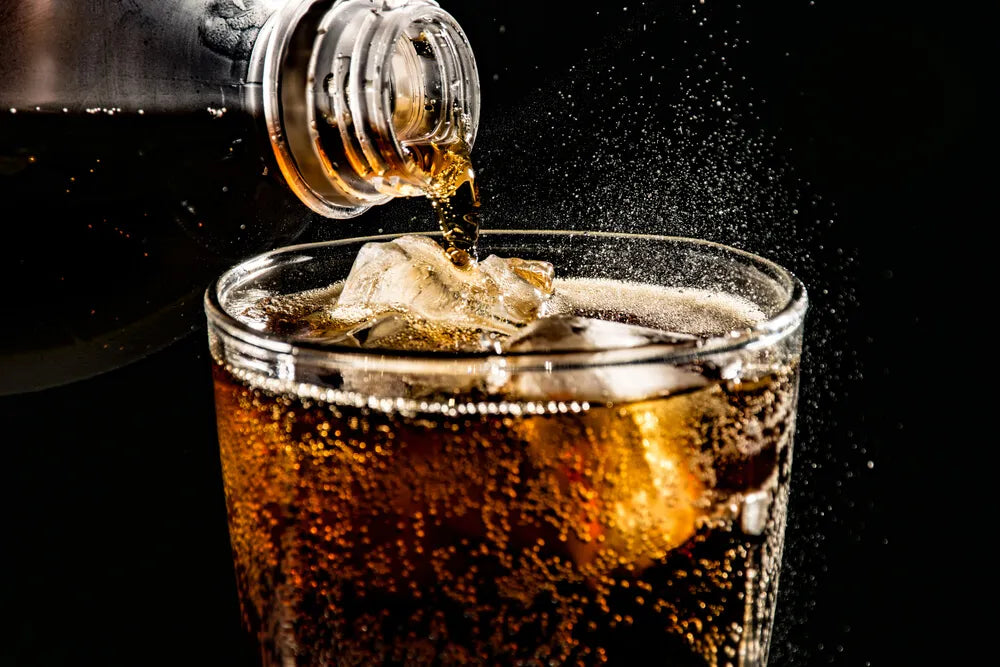Plastic Free July - it's time to Swap the Pop
Single use plastic remains a hot topic - we've all seen controversial and saddening images of littered beaches and trapped sea life, struggling to exist alongside the tide of plastic used and discarded by humans. Much of this discussion has (rightly) centred on reducing the amount of single-use water bottles - because not only is water the best way to stay hydrated - it's natural and essential for all-round wellbeing, it is readily available, rendering single-use bottles unnecessary and avoidable.
However, this Plastic Free July, we're looking at another major polluter, both of our bodies and our seas - and that's carbonated soft drinks. It turns out that our sugar cravings are acting as a major issue for our health and the environment and swapping out your favourite fizzy drink can have a huge impact and a lot of benefits.
What are the effects of carbonated drinks?
Fizzy drinks and our health
Let's take a look first at the health implications of our nation's fixation with fizzy drinks. Predominantly, we need to start by acknowledging that there are practically zero benefits for your body when consuming them and Sustain says that Brits currently consume over two litres of soft drinks per week - that works out at 63g of sugar per day, more than double the daily recommended sugar intake of 30g. Based on the fact that most of these drinks are sugar or sweetener based, they do not boost or support your health in any way, in fact, quite the opposite. Studies have shown the potential for a wide variety of negative side effects of excessive consumption, such as:
- Potential increase in visceral fat around major organs
- Obesity
- Dental health issues
- Cardiovascular problems
- Increased risk of diabetes
Fizzy drinks and the environment
This isn't just a health concern - our fixation with fizz means we are also using and therefore, dumping, much more single-use plastic and we have to consider the carbon footprint of soft drinks. A report has shown the combined plastic pollution produced by giants Coca-Cola, Unilever, PepsiCo and Nestle, in six developing countries stands at more than half a million tonnes per year, which means it could cover 83 football pitches a day. This puts into perspective how great an impact ditching soft drinks and swapping to a refillable bottle, could have. If you look at the global picture and consider those reluctant to recycle, those unable due to lack of, or poor provision, it's clear how quickly our own contributions to the plastic problem can mount up. As a developed country, with access to clean and safe water, we should be looking to maximise this position by making a switch.
Single-use swaps to benefit everyone
Water is the answer, plain and simple. We can start to tackle the plastic problem and boost our health and wellbeing right away, by simply 'Swapping the Pop' this Plastic Free July.
Water is essential for our life and it plays several key roles, including:
- Helping to transport nutrients within the body
- Regulating body temperature
- Remove waste products from the body
- Being appropriately hydrated can positively impact mental performance and concentration
As well as feeling better for drinking less sugar, the reduction in our plastic use is a welcome boost to global efforts to reduce plastic pollution. A million plastic bottles are bought every minute, so a simple swap to a refillable receptacle is a quick way to do your part.
Filtered not fizzy
Better still, filtered water is the best of the best! Filtering your water not only ensures maximum great taste, but it is an extra level of protection against any remaining irritants or contaminants that can remain even after water treatment. Our ceramic filters remove up to 99.99% of common contaminants, so you can enjoy the very best in clean, tasty drinking water.
With us, you can take your optimum hydration experience wherever you go, thanks to our stylish TASTE bottle and range of filter systems for the home.
Go Plastic Free this July and explore our range of high-quality portable water filters.






